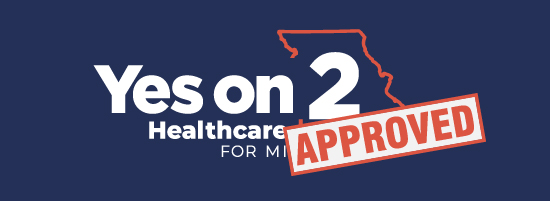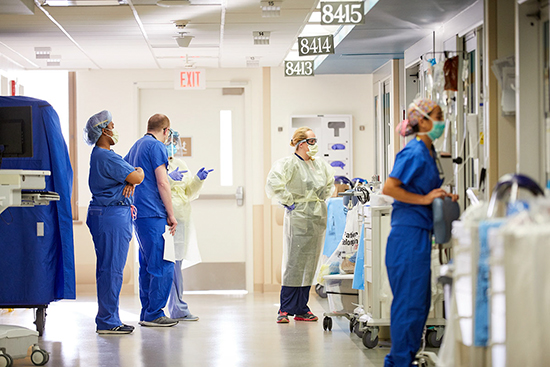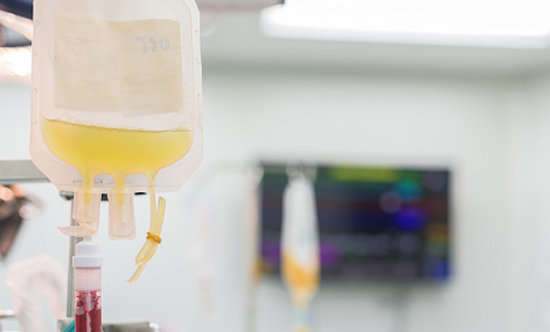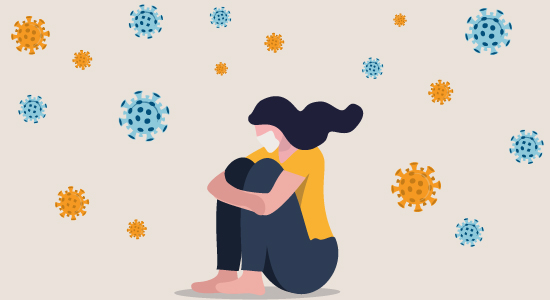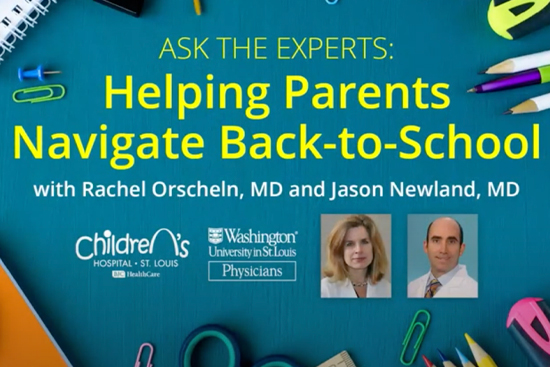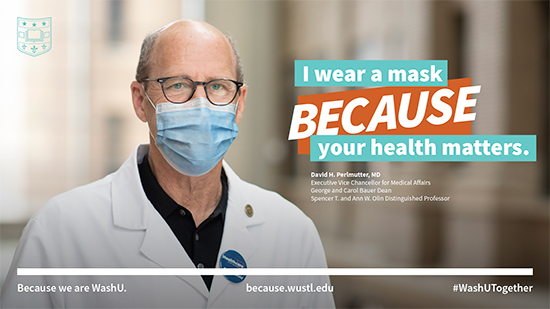Today's COVID-19 stats from BJH
|
Medicaid expansion passes in Missouri
|
Missouri is the latest state to adopt Medicaid expansion as COVID-19 cases continue to surge. Amendment 2, which enshrines Medicaid expansion into the state’s constitution, passed Tuesday with 53 percent of the vote. Supporters say Medicaid expansion is needed now more than ever because it will ensure that all Missourians have access to quality, affordable health care. We look forward to working with state leaders to get people enrolled beginning in July 2021.
Boosting immune system a potential treatment strategy for COVID-19
|
Much COVID-19 research has focused on the immune system’s role in patients who become seriously ill. A popular theory has it that the immune system gets so revved up fighting the virus that, after several days, it produces a so-called cytokine storm that results in potentially fatal organ damage, particularly to the lungs.
New findings suggest that patients become ill because their immune systems can’t do enough to protect them from the virus, landing them in intensive care units. Boosting immunity could be a potential treatment strategy for COVID-19, according to a research team led by School of Medicine scientists. The findings are published online in JAMA Network Open and in the journal JCI Insight.
“People around the world have been treating patients seriously ill with COVID-19 using drugs that do very different things,” said senior investigator Richard S. Hotchkiss, MD, a professor of anesthesiology, of medicine and of surgery. “Some drugs tamp down the immune response, while others enhance it. It may be true that some people die from a hyperinflammatory response, but it appears more likely to us that if you block the immune system too much, you’re not going to be able to control the virus.”
Listen to the latest “Show Me the Science” podcast to learn more.
Lab-created virus can help COVID-19 research, developers say
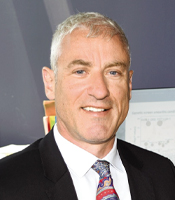 |
Sean Whelan, PhD, head of the Department of Molecular Microbiology, and his colleagues created a virus that infects cells just like the COVID-19 virus, but lacks the ability to cause severe disease. This safer virus makes it possible for scientists who don’t have access to high-level biosafety facilities to join the effort to find drugs or vaccines for COVID-19. Precautions to work with COVID-19 include full-body biohazard suits with pressurized respirators, and labs with multiple containment levels and specialized ventilation systems. But many scientists lack access to such safety measures, slowing efforts to find drugs and vaccines.
In a recent HealthDay article, Whelan explained how he and his team created the virus, and he shared that he has never had so many requests for a scientific material in such a short period of time.
"We've distributed the virus to researchers in Argentina, Brazil, Mexico, Canada and, of course, all over the U.S.," he said in a university news release. "We have requests pending from the U.K. and Germany. Even before we published, people heard that we were working on this and started requesting the material."
Demand for convalescent plasma intensifies
|
The Red Cross is currently distributing convalescent plasma faster than it can collect these special products resulting in an emergency shortage of this potentially lifesaving treatment. The Red Cross is seeking people who are fully recovered from COVID-19 to give plasma to help current patients who are seriously ill or at high risk of serious illness.
You may qualify if you:
- Are at least 17 years old and weigh at least 110 lbs.
- Are in good health and feeling well.
- Have a verified prior diagnosis of COVID-19.
- Are fully recovered and symptom-free for at least 14 days, as determined by your medical provider.
If you meet all the criteria above and are willing to help, please fill out the Donor Eligibility Form.
A COVID-19 vaccine, amazingly, is close. Why am I so worried?
|
Although Michael Kinch, PhD, associate vice chancellor and professor of biochemistry and molecular biophysics, said it is an impressive feat that scientists already are on the precipice of having a vaccine to fight COVID-19, he wants to temper expectations with a dose of realism and perhaps a bit of angst. In a recent op-ed in STAT News, he said the Food and Drug Administration prematurely approving a substandard vaccine could have dire complications in this pandemic and harm public health for years to come.
“Under normal circumstances, ensuring that a vaccine’s effects are safe and durable requires years of study and monitoring,” said Kinch, also director of the University’s Centers for Research Innovation in Biotechnology & Drug Discovery. “And there is that natural immune responses to SARS-CoV-2 infection could be transient, making sustained investigation all the more necessary. A merely short-term effect could encourage vaccinated individuals to resume risky behaviors, which would all but guarantee that the epidemic endures. And if unintended side effects turn out to include, for instance, chronic inflammatory or autoimmune disease, a bad vaccine could impart lifelong damage.”
Have questions about the coming school year and COVID-19?
|
Listen as Rachel Orscheln, MD, and Jason Newland, MD, Washington University pediatric infectious disease specialists from St. Louis Children’s Hospital, offer their advice for students returning to school. Topics include safety precautions, disease transmission in kids, testing and masking recommendations, in-person classes and virtual learning.
|
Important numbers and links
-
Call the BJC/WUSM employee hotline for COVID-19 exposure or illness: 314-362-5056
-
Use this online screening tool before reporting to work
-
Know your screening stations
-
Review inpatient protocol
-
Review ambulatory protocol
-
Call the Well-Being Line for in-the-moment emotional support: 314-286-1700
-
Contact the Employee Assistance Program for 24/7 work-life support: 844-365-4587
-
Email inspirational stories to heroes@wustl.edu

